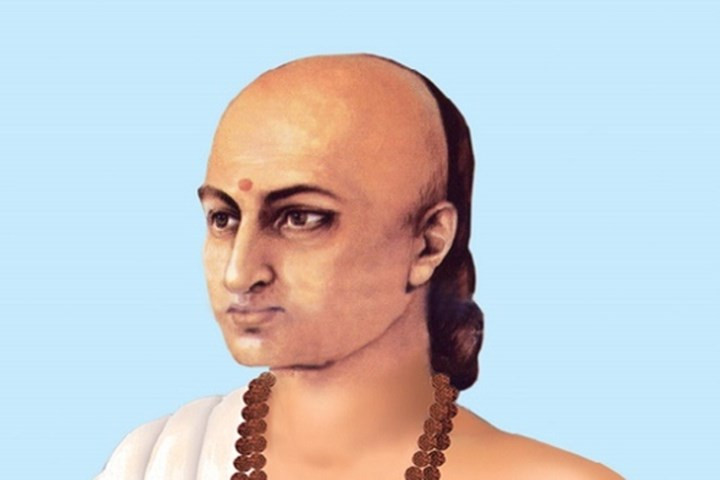Amazing scientific knowledge of ancient Indians
Are important knowledge in modern sciences known to ancient Indians?
1. The age of the Earth
In a famous Indian rhyming called Manusmriti, the calculation of the age of the Earth is described in two verses that express the life of Brahma. (Brahma is the creative god in Hinduism).
Professor Arthur Holmes, a geologist and professor at Durham University, said: "Many ancient sages tried to predict the age of the world. The most notable is the construction. The study of ancient Hindus with the concepts of time and the origin of the Earth in the sacred book Manusmriti '.
As early as the 5th century, Indians claimed that Earth was 4.3 billion years old. Meanwhile European philosophers think that our planet is only about 100 million years old.
Modern science has calculated the age of the Earth at about 4.6 billion years, very close to the estimated 4.3 billion years of ancient Indians nearly 15 centuries ago.
2. Trigonometry and optics
Varahamihira, astronomer, mathematician and astrologer in the 5th century has defined the concepts of refraction and reflection. He also identified algebraic properties of zero as well as negative numbers. World debt India has a huge amount of knowledge and basic in the field of mathematics and physics from the very old days.

Portrait of Aryabhata, the great mathematician of ancient India, who created the zero. (Image source: greatmindsoftheworld.com).
3. Discover gravity
India's legendary Vedas ministry is over 5,000 years old. And in this ancient sutra there are verses that suggest that gravity binds the universe together and that the Sun is the center of the universe. Vedas have existed for thousands of years when Newton and Copernicus and their discoveries were born.
4. Pythagoras's theorem
The ancient Indian mathematician Baudhayana wrote about a theorem similar to Pythagoras's theorem in the book Baudhayana Sulbassutra in 800 BC. This book is one of the oldest surviving high school math books.
Many historians think that Pythagoras has traveled to many parts of the world and even visited India. Then perhaps he learned mathematical knowledge from this place, including Pythagoras's theorem.
In a work written by Kim Plofker, a professor of mathematics at Brown University, said: "Potential mathematical theorems like Pythagoras have been applied in building pillars and structures in India. from ancient times, long before Greek philosophers knew them. '
5. Number 0
The Arabic numerals and decimal system are all originated in India. After a long period of secrecy, they were popularized by the Arabs and gradually spread to the west. Aryabhata is the ancient mathematician who is said to have discovered the zero and the decimal system. Besides, he also created exponents and exponential functions 3.
6. High quality steel
Scientists believe that in 200 BC, high-quality steel was produced in India through a technique that Europeans call metallurgy.
William James Durant, a writer, historian, and philosopher wrote in his famous book, The Story of Civilization, saying: "By the sixth century, Hindus They have surpassed Europe in the field of industrial chemicals, they are masters of distillation, sublimation, creating metal salts, compounds and alloys'.
7. The first university in the world
Around 800 BC, a large university in the Takshashila region (commonly known as Taxila) was built in the northwestern region of India. At this time, the rest of the world is unaware of the existence of a university concept.
Joseph Needham, an English scientist and historian wrote : "When Alexander the Great's soldiers arrived in Taxila in India in the fourth century BC, they found a university that had many hundred This year teaches about the three Vedas and 18 achievements of Hinduism '.
- The wrong scientific knowledge that everyone believes is true
- 7 super interesting scientific knowledge that we missed while at school
- Less scientific knowledge is taught in schools
- How much is the science of 'ignorance'?
- Knowledge Vault - The system for storing all knowledge of mankind
- 6 wrong 'truths' in high school textbooks
- Video: 6 seconds of amazing scientific experiments
- Ancient Roman fortress: The architecture is perfectly perpendicular to the Sun.
- Amazing scientific findings in the Gulf of Mexico
- 5 knowledge treasures are destroyed by humans
- The 10 ancient people do better than we do today (Part 1)
- 6 scientific mysteries that, despite being brainstormed in 2018, are still hard to get a satisfactory answer
 'Fine laughs' - Scary and painful torture in ancient times
'Fine laughs' - Scary and painful torture in ancient times The sequence of numbers 142857 of the Egyptian pyramids is known as the strangest number in the world - Why?
The sequence of numbers 142857 of the Egyptian pyramids is known as the strangest number in the world - Why? History of the iron
History of the iron What is alum?
What is alum?